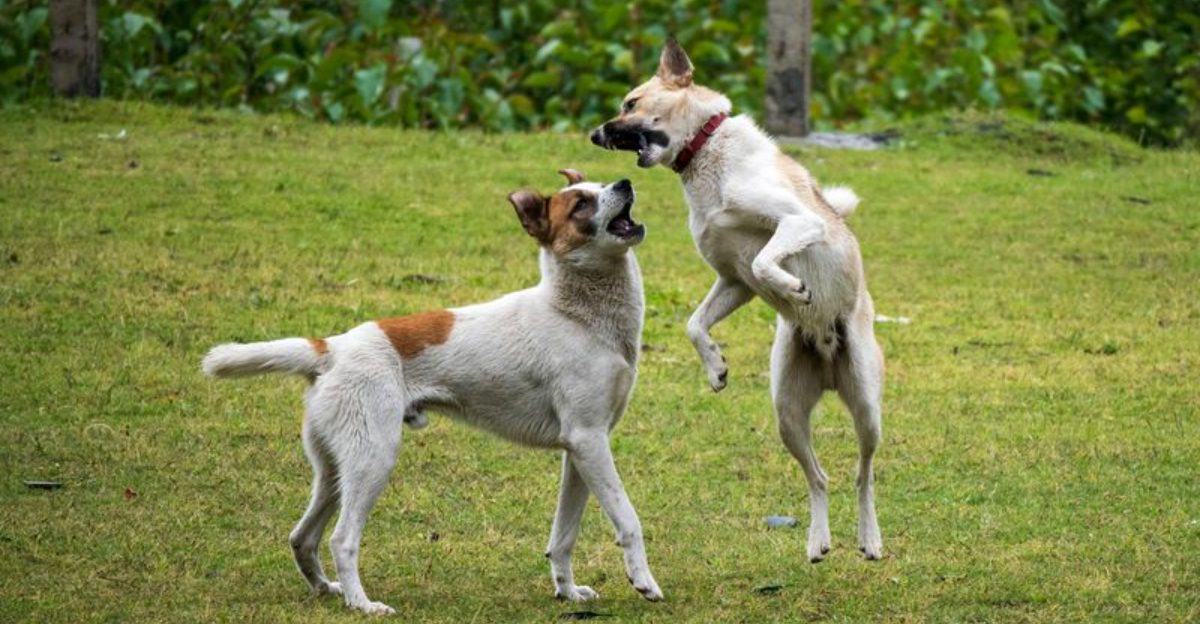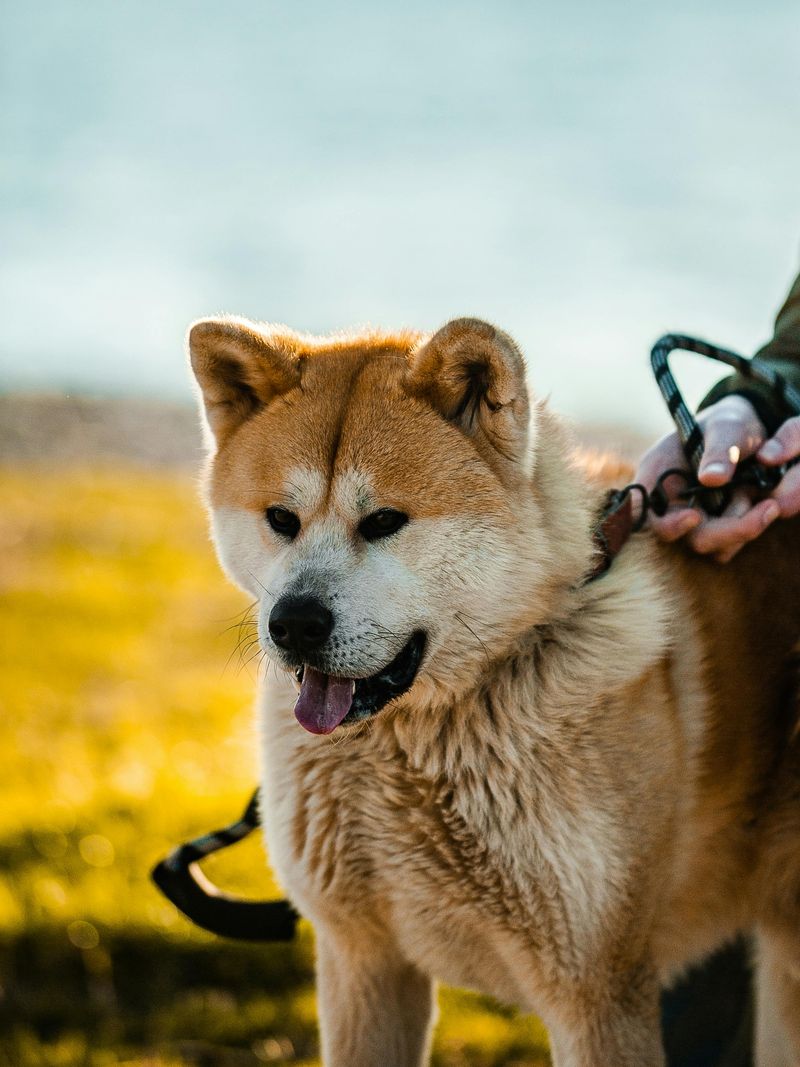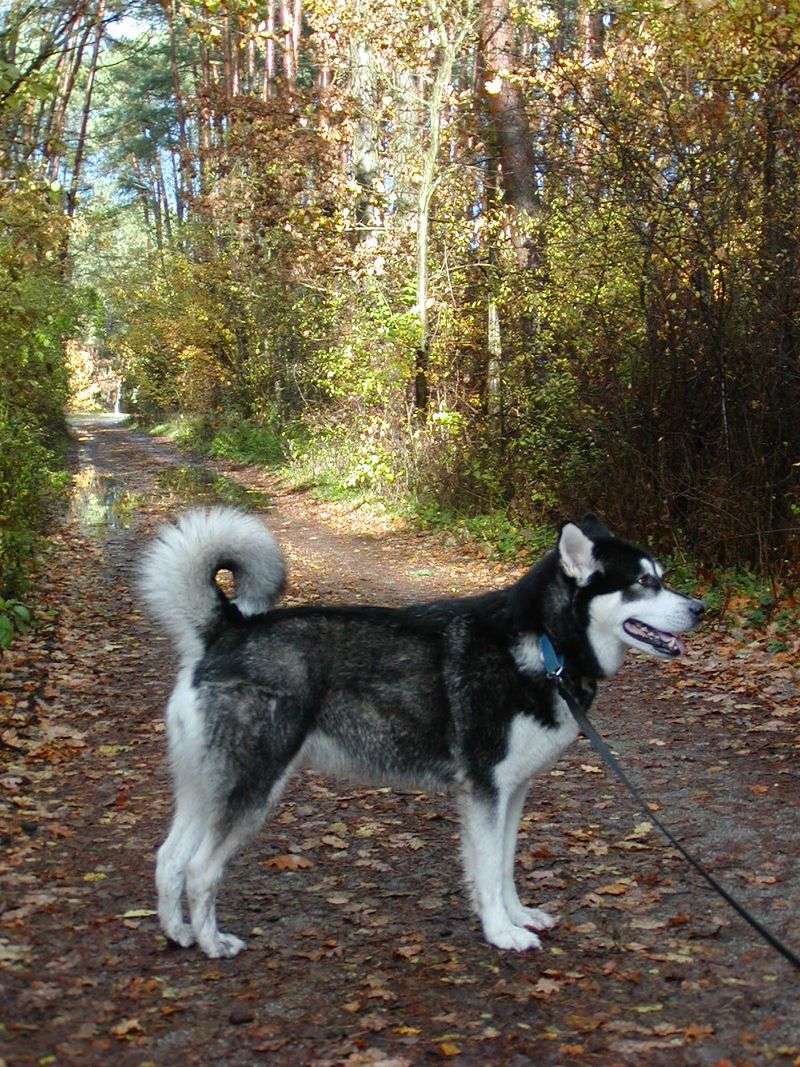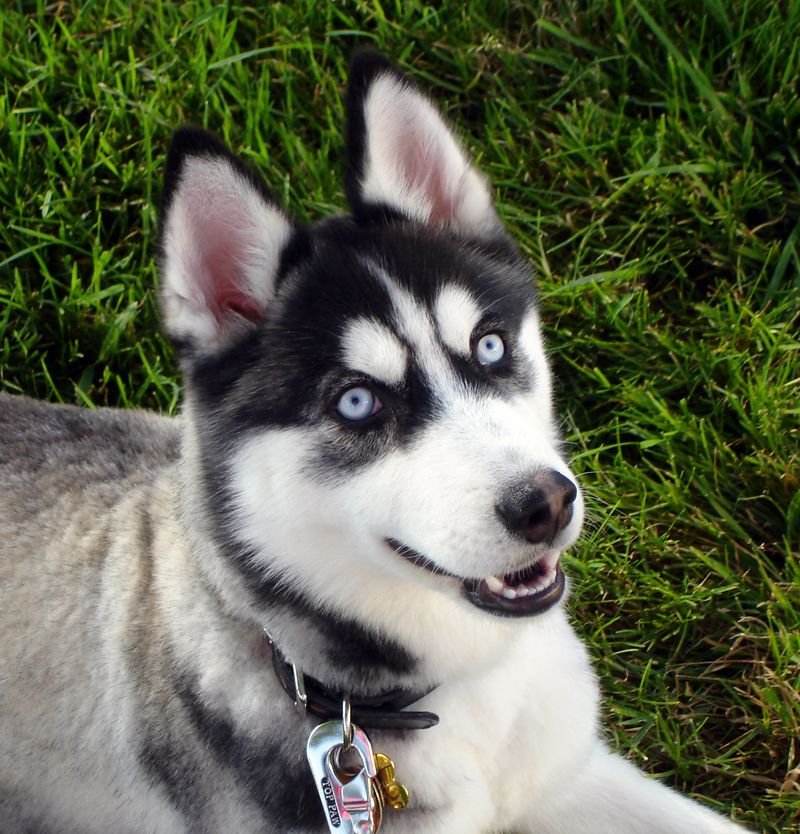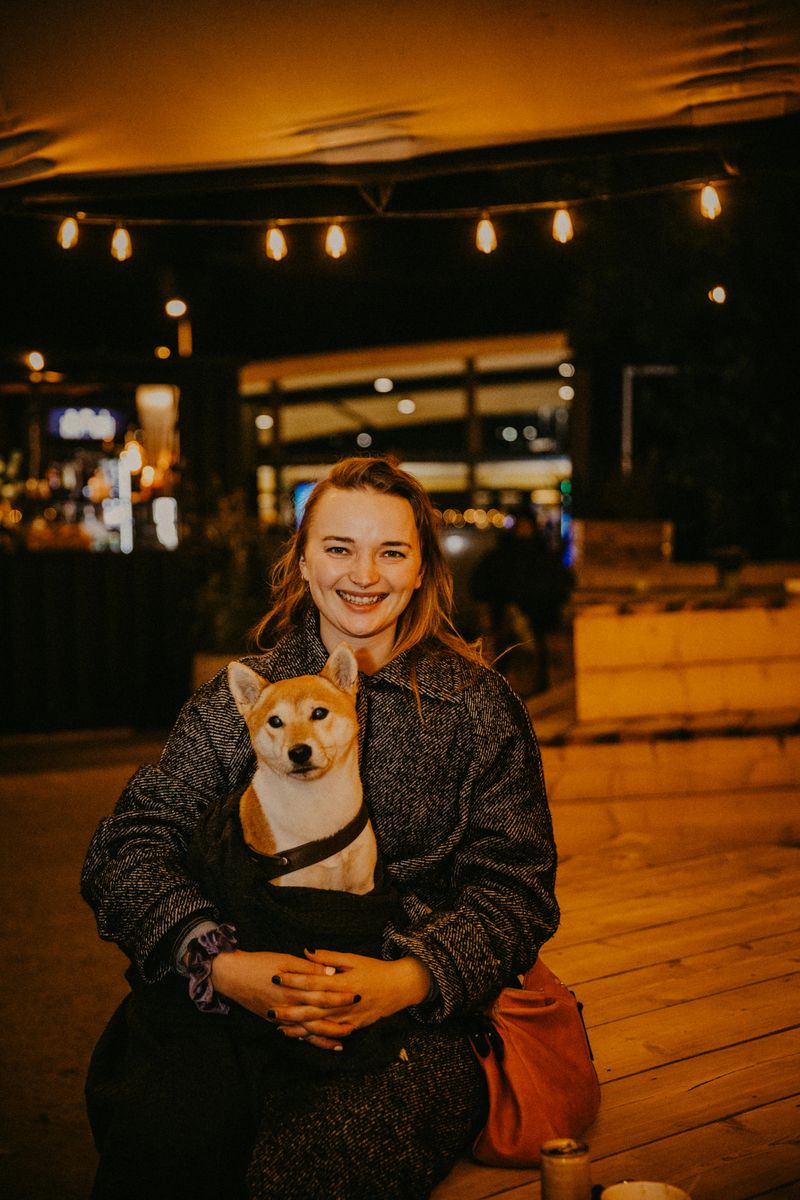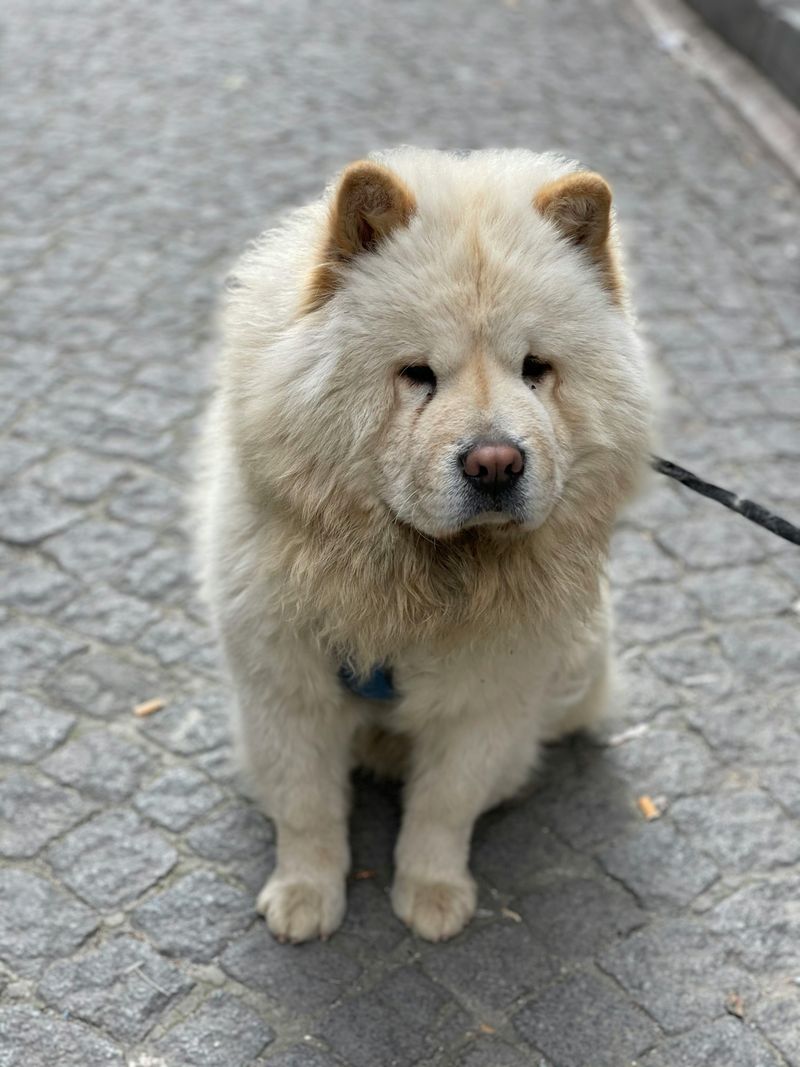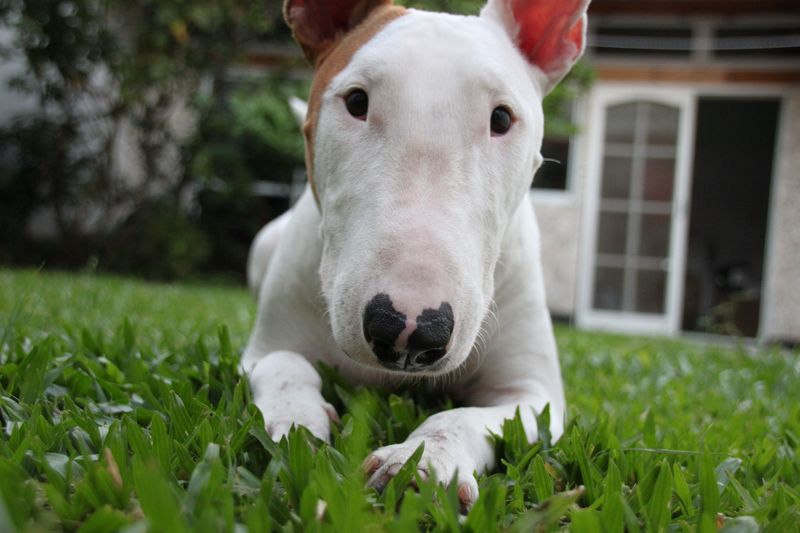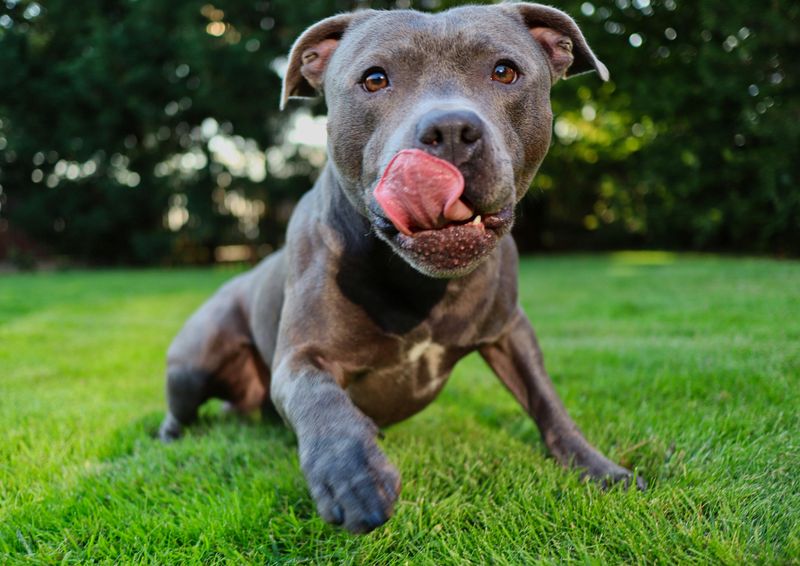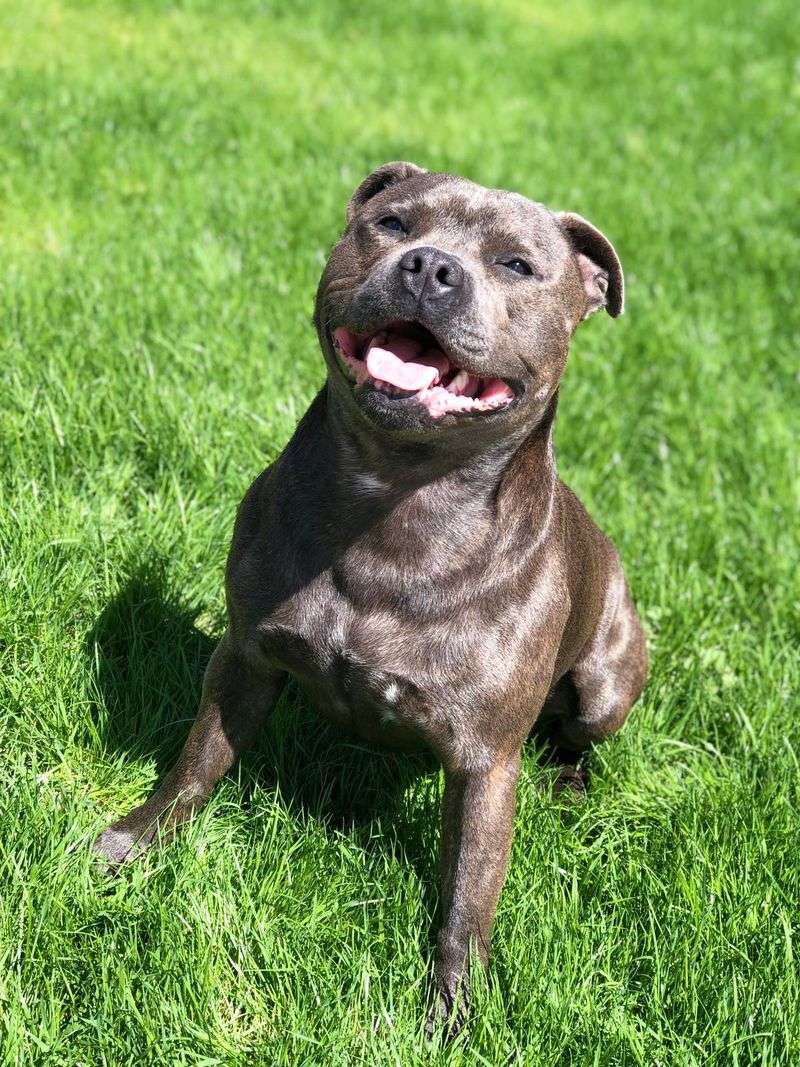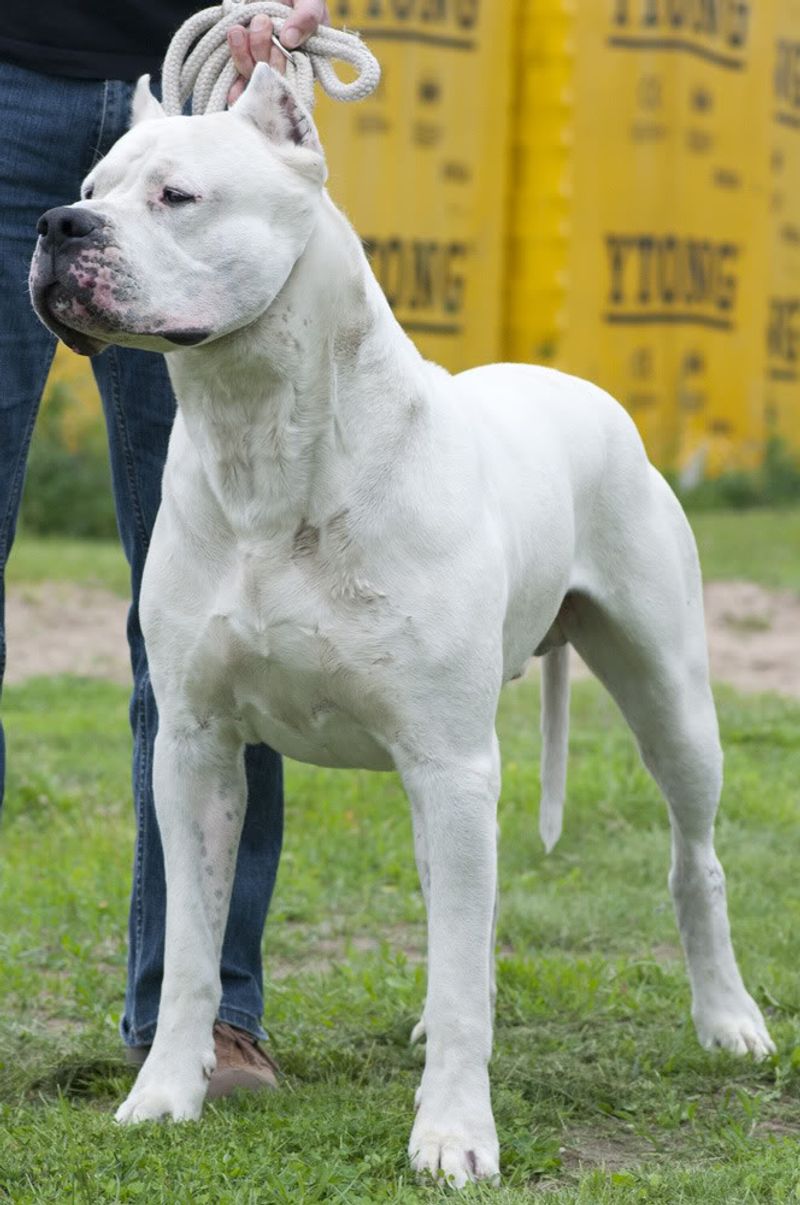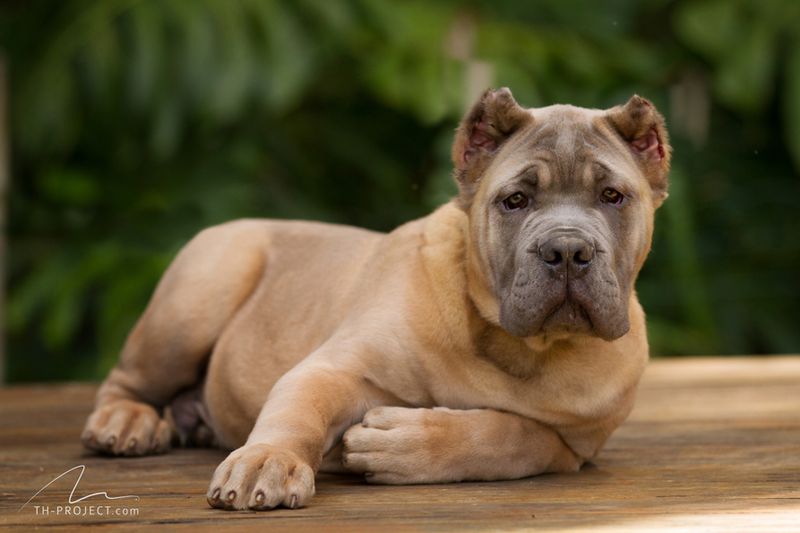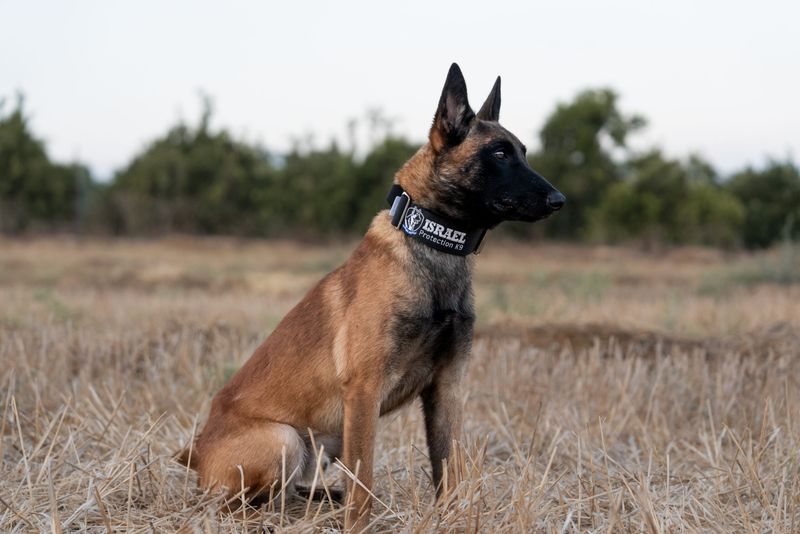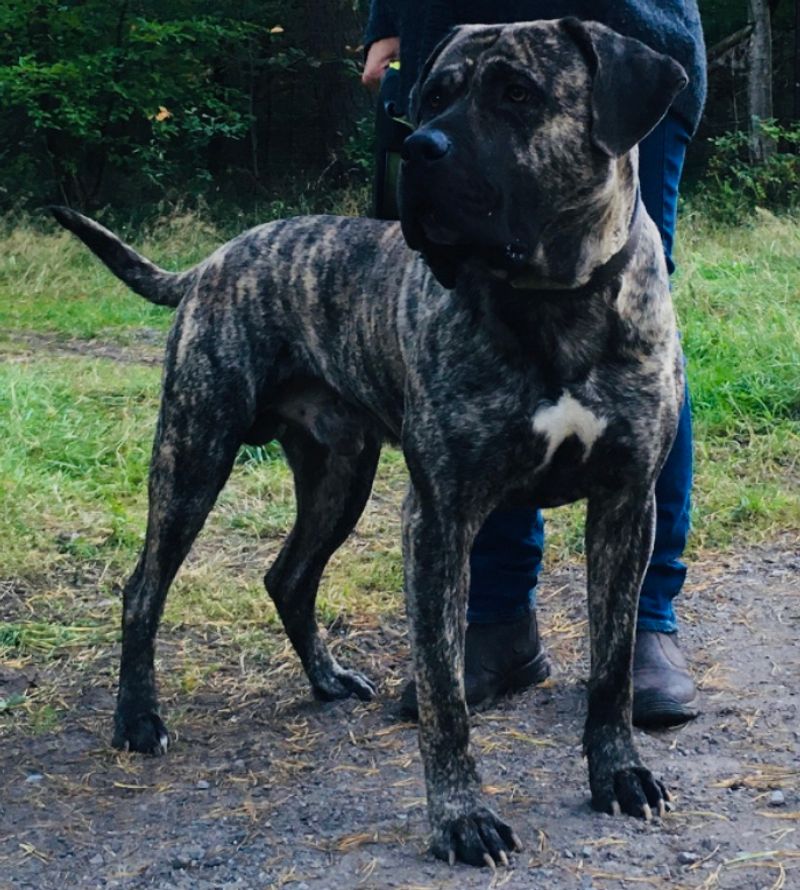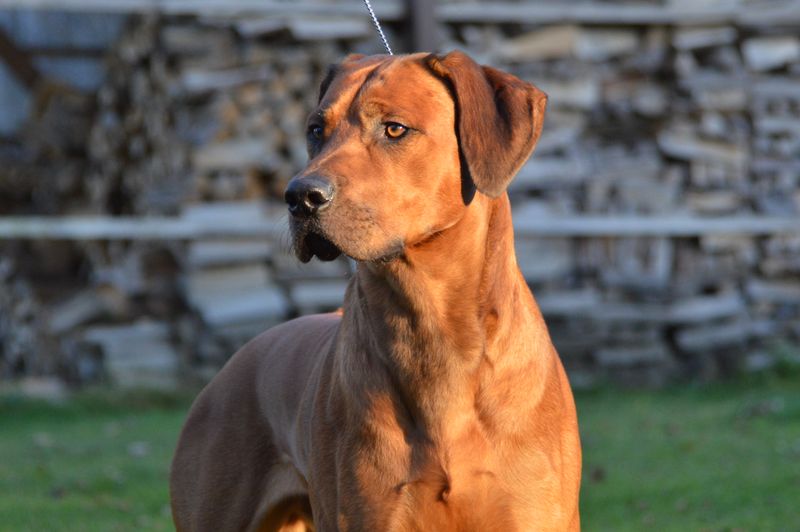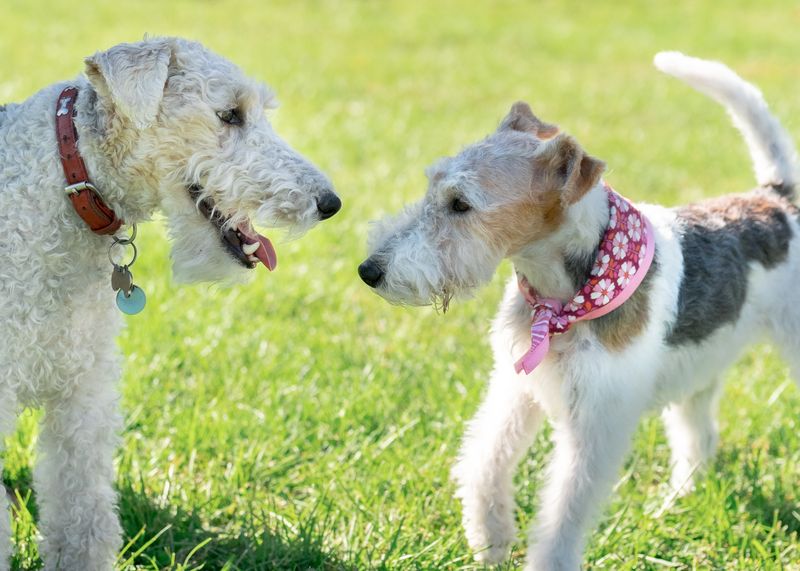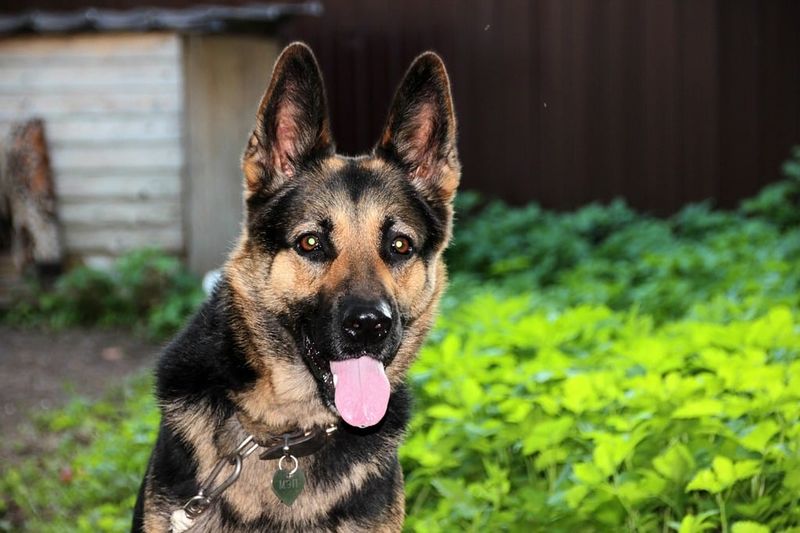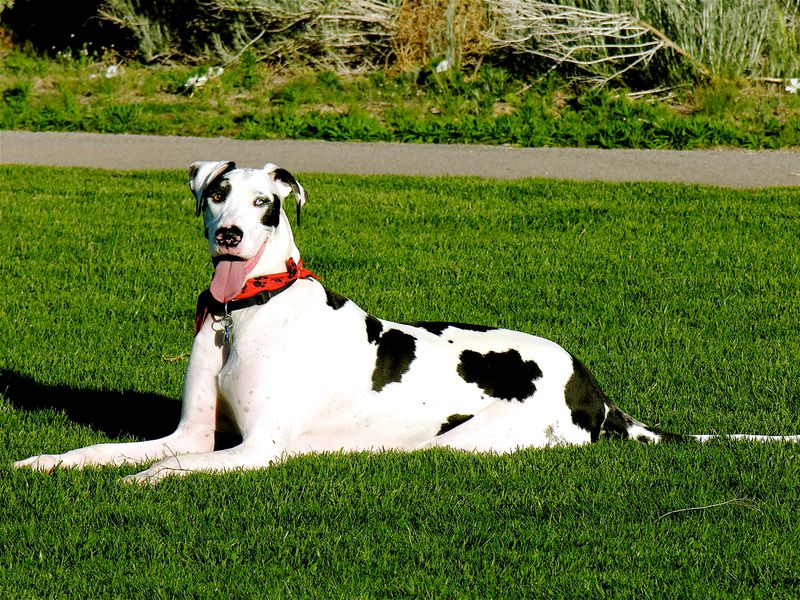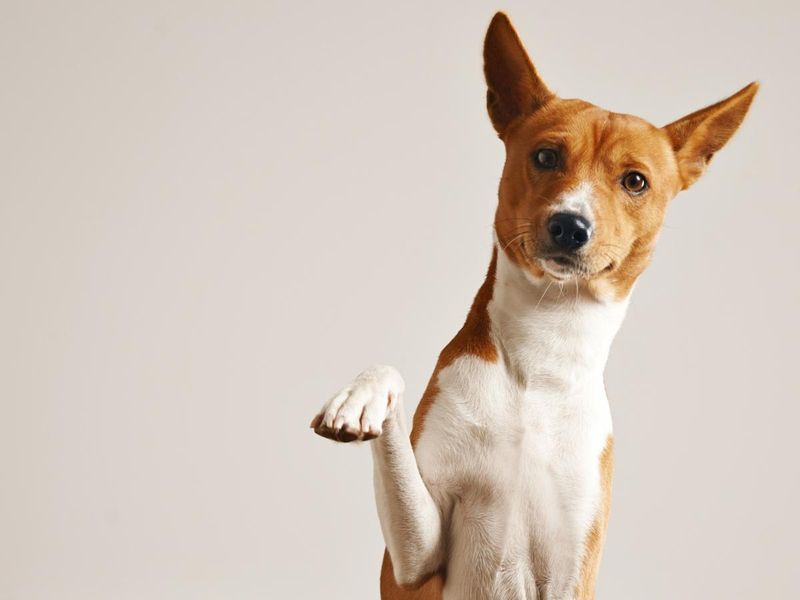Socialization is crucial for certain dog breeds to ensure they interact well with other pets. Some breeds have stronger instincts or personalities that make early socialization essential. Here are 23 breeds that benefit greatly from this early training.
Akita Inu
The Akita Inu, with its regal stance and dignified demeanor, is known for its loyalty. However, this breed can be reserved with strangers and other pets.
Early socialization helps the Akita develop a balanced temperament. Introducing them to various environments and animals at a young age can mitigate their natural guarding instincts.
Did you know? The Akita Inu hails from Japan and has a storied history as a revered protector. With patience and positive reinforcement, they can become warm companions.
Alaskan Malamute
The Alaskan Malamute, a strong and independent breed, thrives in snowy terrains. Their pack mentality makes early socialization with other pets crucial.
These dogs were bred to pull heavy sleds, so they have a strong working drive. Interacting with various animals early can help channel this energy positively.
Despite their large size, Malamutes are gentle giants when properly socialized. Establishing boundaries and fostering positive experiences can turn them into amiable companions.
Siberian Husky
Known for their striking eyes and boundless energy, Siberian Huskies are natural explorers. Early socialization is key to managing their spirited nature.
These dogs are known for their independence and can be mischievous if not properly trained. Engaging them with other pets helps reduce their prey drive.
Huskies thrive in active households. Early interactions with various animals can curtail their penchant for chasing and foster a harmonious environment.
Shiba Inu
The Shiba Inu, Japan’s spirited fox-like breed, is known for its independent streak. Early exposure to diverse environments is essential for this breed.
Shibas can be reserved, making socialization vital to prevent aloofness. Introducing them to various animals can help them adapt to multi-pet households.
Historically hunters, Shibas benefit from structured socialization to channel their instincts positively. Encouraging positive interactions can mold them into well-rounded companions.
Chow Chow
Chow Chows, with their majestic lion-like appearance, are known for their aloof personality. Socialization is key to harnessing their natural independence.
Historically guardians, Chows need early exposure to other pets to reduce territorial behaviors. Engaging them with different animals helps foster tolerance.
Despite their reserved nature, Chows can be loyal and affectionate when properly socialized. Consistent positive interactions will nurture their gentle side.
Bull Terrier
The Bull Terrier, with its unique egg-shaped head, is known for its playful and mischievous nature. Early socialization curbs potential stubbornness.
This breed is energetic and thrives on companionship. Introducing them to various pets helps them develop balanced social skills.
Bull Terriers, once feared in the ring, are delightful family pets with the right socialization. Positive exposure to different situations nurtures their friendly nature.
American Pit Bull Terrier
American Pit Bull Terriers, with their muscular build and affectionate nature, often face misconceptions. Early socialization is vital to showcase their true temperament.
These dogs are naturally loyal and benefit from positive interactions with other pets to curb any potential aggressive tendencies.
When introduced to varied environments, Pit Bulls can be gentle companions. Their amiable nature shines through with consistent, positive reinforcement.
Staffordshire Bull Terrier
Affectionately known as the “Staffy,” the Staffordshire Bull Terrier is a powerhouse of love and energy. Early socialization helps manage their enthusiastic nature.
These dogs are people-oriented and thrive in social settings. Introducing them to other pets helps develop their gentle side.
Staffies are known for their ‘nanny dog’ reputation. Proper socialization nurtures this quality, ensuring they are amiable companions.
Dogo Argentino
The Dogo Argentino, with its powerful build, was bred for big game hunting. Socialization is crucial to manage their natural instincts.
These dogs are protective and loyal, but need exposure to other animals to ensure they are well-mannered companions.
Despite their imposing appearance, Dogos can be affectionate family members with the right socialization. Early interactions help harness their instincts positively.
Cane Corso
The Cane Corso, a majestic guardian breed, is known for its loyalty and protective instincts. Early socialization is key to nurturing their balanced nature.
These dogs require positive interactions with a variety of pets to manage their guarding tendencies effectively.
With proper exposure, Corsos become gentle and affectionate companions. Consistent socialization ensures they are well-adjusted in diverse environments.
Doberman Pinscher
Known for their elegance and intelligence, Doberman Pinschers are natural protectors. Early socialization helps them adapt to different social settings.
Dobermans need exposure to various environments to curb any potential aloofness or territorial behavior.
These dogs can be affectionate and playful. Positive socialization from a young age nurtures their gentle and loyal nature.
Rottweiler
Rottweilers, with their robust build, are known for their strong guarding instincts. Early socialization is essential for a harmonious household.
These dogs are naturally protective, and exposure to various pets helps them develop balanced social skills.
With proper socialization, Rottweilers become loyal and affectionate companions. Early interactions encourage their natural warm side.
Belgian Malinois
The Belgian Malinois, renowned for its intelligence and agility, thrives on mental stimulation. Early socialization is crucial for managing their energy.
These dogs excel in active environments and need exposure to different pets to develop balanced temperaments.
Malinois are versatile dogs with the right training. Socialization helps harness their instincts positively, making them reliable companions.
Presa Canario
The Presa Canario, with its commanding presence, is a natural guardian. Early socialization ensures they develop a balanced demeanor.
These dogs are protective and need exposure to various animals to reduce territorial behaviors.
Despite their size, Presas can be gentle and affectionate. Positive socialization helps them become reliable family members.
Rhodesian Ridgeback
The Rhodesian Ridgeback, known for its distinctive ridge, was bred to hunt lions. Early socialization is pivotal in managing their strong instincts.
These dogs are independent thinkers and benefit from exposure to diverse environments and animals.
Ridgebacks can be affectionate and loyal with the right socialization. Early interactions ensure they adapt well to multi-pet households.
Weimaraner
Weimaraners, with their sleek, silver coats, are known for their energetic personalities. Early socialization helps channel their exuberance positively.
These dogs thrive on companionship and need exposure to other pets to develop balanced social skills.
With the right socialization, Weimaraners become affectionate family members. Early interactions help foster their friendly and playful nature.
Jack Russell Terrier
Jack Russell Terriers, with their boundless energy, are lively companions. Early socialization is essential to manage their spirited nature.
These dogs have a strong prey drive and need exposure to various pets to develop amicable social skills.
Proper socialization helps Jack Russells channel their energy positively, making them delightful companions in active households.
Fox Terrier
Fox Terriers, with their lively disposition, are known for their inquisitive nature. Early socialization is essential to manage their energetic temperament.
These dogs have a strong hunting instinct and need exposure to other pets to develop balanced social skills.
With the right socialization, Fox Terriers become affectionate and playful companions. Early exposure helps them adapt well to multi-pet settings.
Airedale Terrier
The Airedale Terrier, known as the ‘King of Terriers,’ is a versatile breed. Early socialization helps manage their independent nature.
These dogs are intelligent and benefit from exposure to various pets to develop balanced temperaments.
With proper socialization, Airedales become reliable and affectionate companions. Early interactions foster their friendly and adaptable nature.
Australian Cattle Dog
Australian Cattle Dogs, known for their herding prowess, thrive on activity. Early socialization is key to channeling their energy positively.
These dogs are highly intelligent and need exposure to various animals to develop amicable social skills.
With consistent socialization, Cattle Dogs become loyal and affectionate companions. Early interactions help harness their natural instincts in a balanced way.
German Shepherd
German Shepherds, renowned for their versatility, are natural protectors. Early socialization ensures they develop well-rounded temperaments.
These dogs are intelligent and thrive in active environments. Exposure to various pets helps them manage their protective instincts.
When properly socialized, German Shepherds are loyal and affectionate. Early exposure fosters their friendly nature, making them reliable companions.
Great Dane
Great Danes, with their towering stature, are known for their gentle demeanor. Early socialization is essential to nurture their calm nature.
These dogs are affectionate and benefit from exposure to various animals to develop balanced social skills.
With the right socialization, Great Danes become friendly giants. Early interactions help them adapt well to diverse environments.
Basenji
The Basenji, often called the “barkless dog,” is known for its curious and independent nature. Early socialization is key to managing their unique temperament.
These dogs are intelligent and need exposure to various pets to develop balanced social skills.
With proper socialization, Basenjis become affectionate and adaptable companions. Early interactions help channel their inquisitive nature positively.
